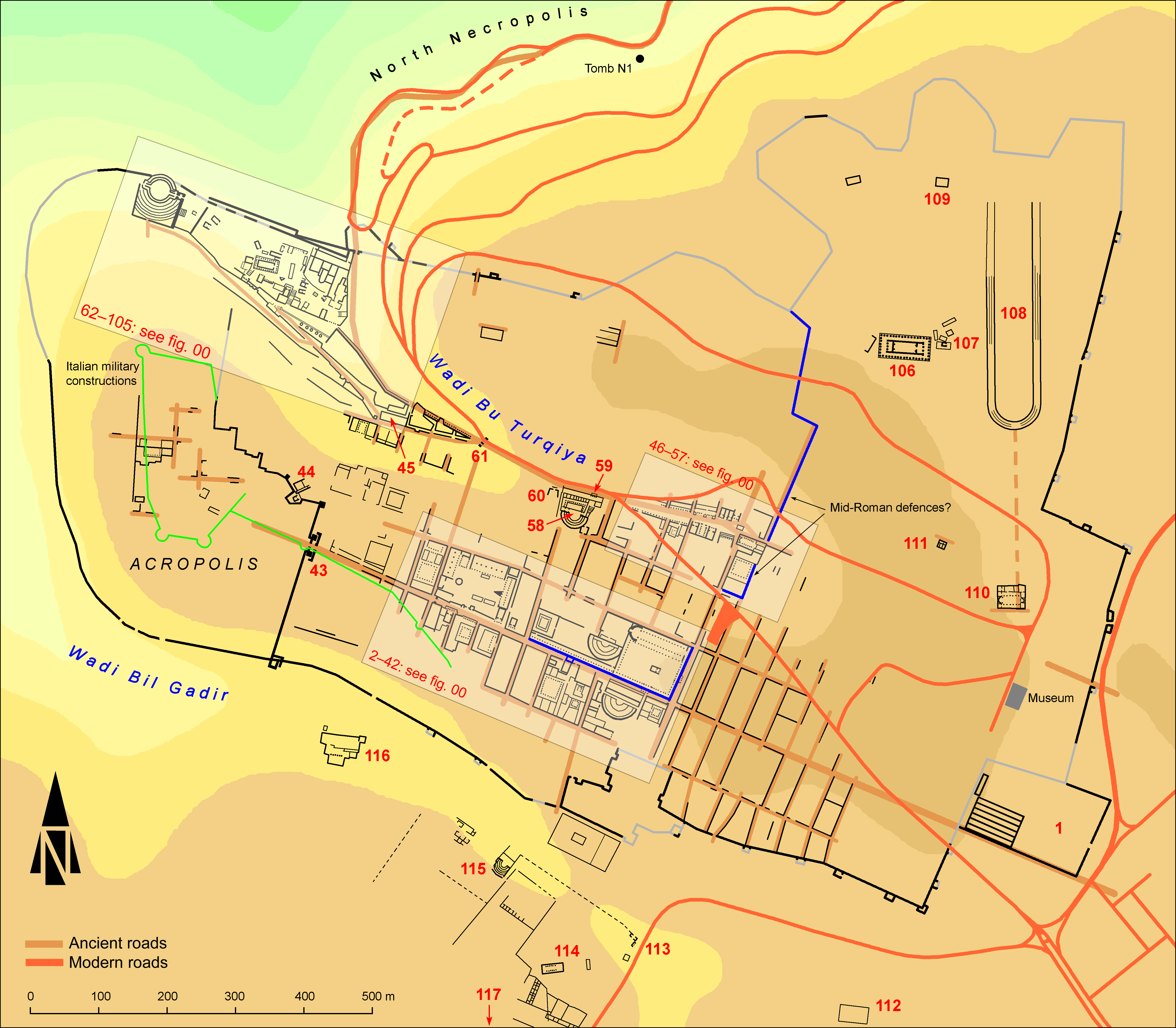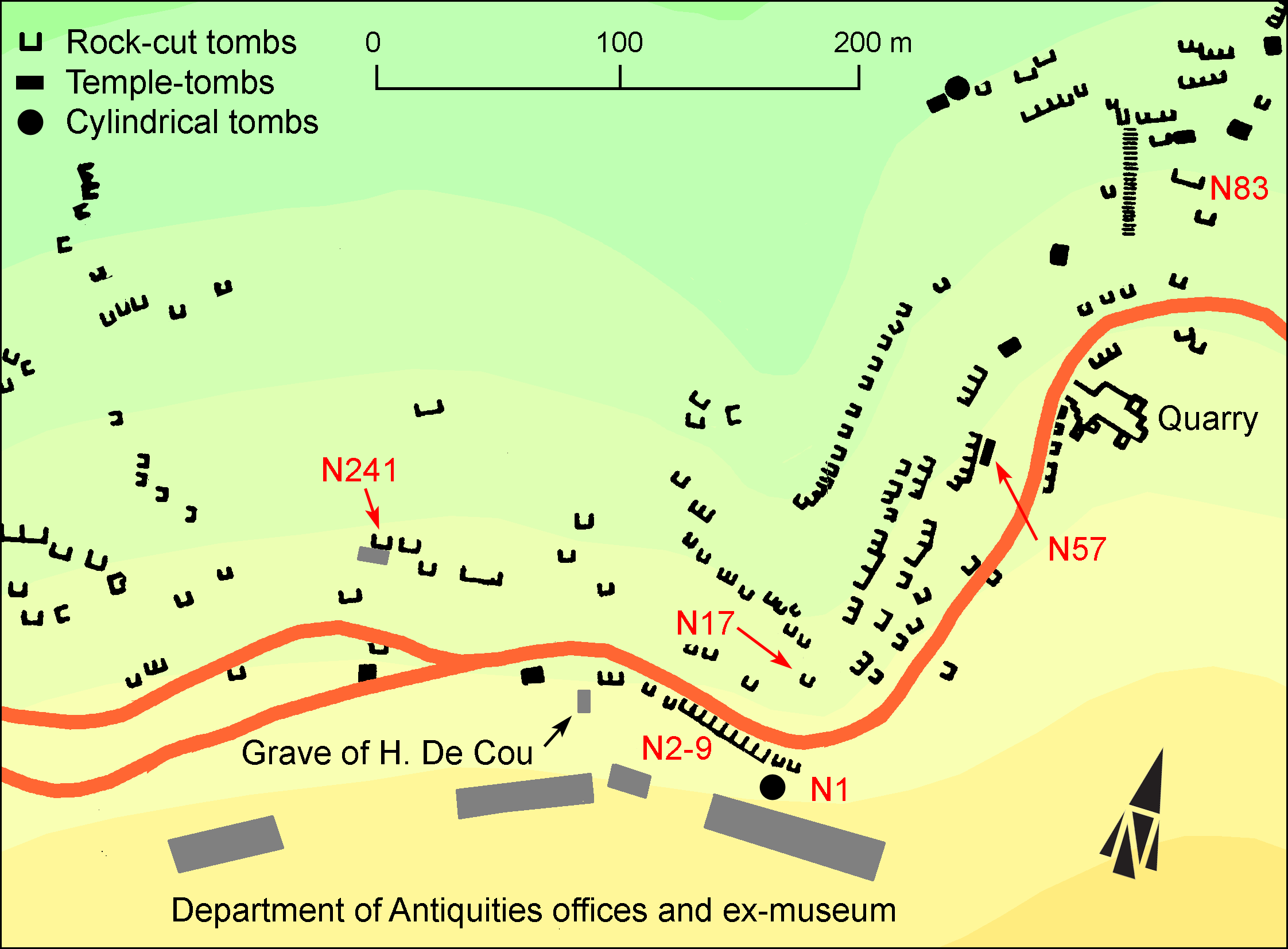EpiDoc XML:
IGCyr0240002
Trismegistos ID:
738253
Source description
Support: Limestone base with plain mouldings, partly broken off (w: 0.96 × h: 0.31 × d: 0.38).
Layout: Inscribed twice on the face.
Letters: 0.035.
Date: Second half of the fourth century BC (Rosamilia) (lettering).
Findspot: Found at an unknown date at Cyrene ➚: near the small tower of the ancient City Wall, South-East of the former 'Grande Albergo', so possibly brought from the North Necropolis, perhaps neighbouring tombs N 378 or 379 Cassels (but see commentary).
Last recorded location: Not found.
Text constituted from: Transcription from editor (CDL).
Bibliography
Oliverio 1933-1936, p. 111, n. 84 and fig. 40a and b, whence SEG, 9.196; IGCyr 024000 ➚. Cf. Beschi 1970, p. 204 (date of the base); Thorn – Thorn 2009, p. 138; Belzic 2022, catalogue B.12; Rosamilia 2023, p. 35, footnote 117.
Text
French translation
Parmenon, fils de Nikias, crétois.
English translation
Parmenon, son of Nikias, Cretan.
Italian translation
Parmenon, figlio di Nikias, cretese.
Commentary
The whole text was cut once, erased and cut again, with a small shift from one version to the other, namely the layout of the three names on the two lines. Only the end of the second line was not really erased, although Σ is written lower than the line. This was probably a beginner's test and may have never stood in a tomb. However its bad condition shows that it was re-used for some purpose.
The Thorns duly underline the oddness of limestone as a material for a funerary base; however, they stick to the idea of a relation with a tomb in the vicinity of the findspot.
Rosamilia 2023 suggests that Parmenon wos one of Thibro's mercenaries.
CC BY-NC-SA 4.0 Deed Attribution-NonCommercial-ShareAlike 4.0 International License.
All citation, reuse or distribution of this work must contain a link back to DOI: https://doi.org/10.60760/unibo/igcyrgvcyr2 and the filename (IGCyr000000 or GVCyr000), as well as the year of consultation.


